#Delites
Explore tagged Tumblr posts
Text
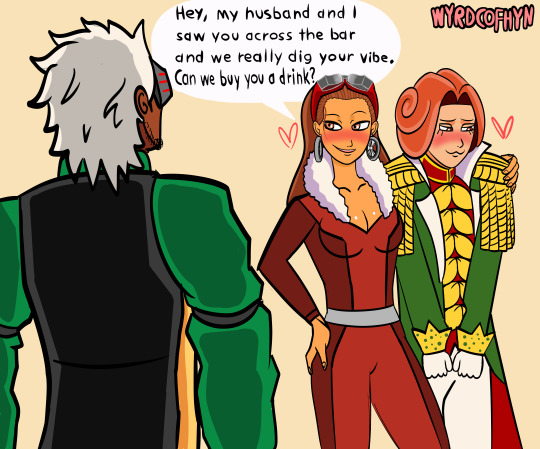
this is canon (he said Absolutely and they had fun)
#ace attorney#godot#diego armando#aa godot#prosecutor godot#trials and tribulations#aa3#desiree delite#ron delite#desiron#desirondot#rondot#the stolen turnabout#delites
167 notes
·
View notes
Text


4K notes
·
View notes
Text





still on my ace attorney kick. last image based on this post
#I also wanted to draw edgeworth in an actual cravat bc the thing he’s wearing is really a jabot#but that’ll probably get its own post cuz I wanna color it#and also maya and Phoenix doing the objection point from one of the anniversary skits bc I thought it was really cute LOL#my art#myart#doodles#ace attorney#aa#phoenix wright#prosecutor godot#godot#maya fey#Mia fey#if you count maya channeling her I guess?#miles edgeworth#desiree delite#Ron delite#it’s fun drawing these
4K notes
·
View notes
Text
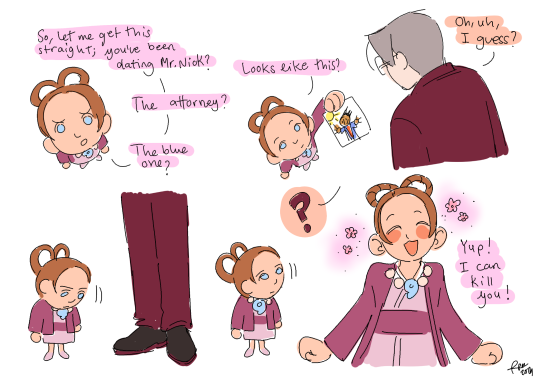

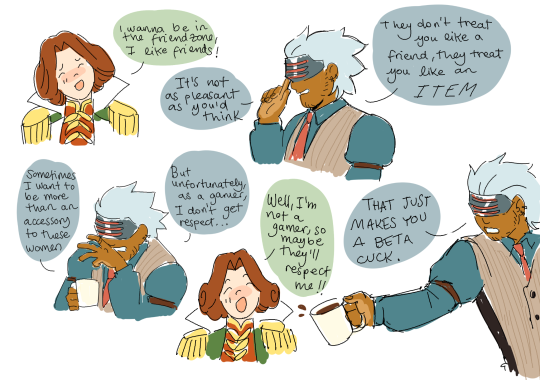
time for a silly post (I say as if my posts hadn't been silly for the past month)
fans of the sonic snapcube dubs will recognize these, but if you don't recognize these, just imagine these lines are ace attorney canon. thank you
#ace attorney#ace attorney fanart#miles edgeworth#phoenix wright#wrightworth#pearl fey#prosecutor godot#ron delite#larry butz#snapcube#sonic snapcube
9K notes
·
View notes
Text

3K notes
·
View notes
Text








first batch of aa drawing requests (and also some older art) from titerrr
#mia fey#maya fey#will powers#dick gumshoe#larry butz#godot#luke atmey#desiree delite#ron delite#ace attorney#my art
1K notes
·
View notes
Text

thank you for the requests!
#satsuhart#ace attorney#maya fey#ron delite#eustace winner#sebastian debeste#simeon saint#simon keyes#apollo justice#uendo toneido#simon blackquill#lamiroir
1K notes
·
View notes
Text








blehh
#digital art#art#fan art#doodle#ace attorney#maya fey#miles edgeworth#phoenix wright#dahlia hawthorne#klavier gavin#apollo justice#ron delite#desiree delite
1K notes
·
View notes
Text


I LUVVV THE DELITES!!
#my art//#ace attorney#gyakuten saiban#ron delite#desiree delite#godot#yusaku amasugi#mareka amasugi#finally playing aa3 they are sooo freaking CUTE!!!!#this game is fantastic so far cant wait to play the rest!!
3K notes
·
View notes
Text
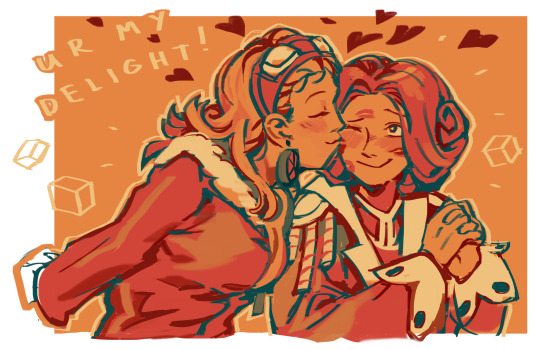


some more misc aa doodles cuz why nottttt
#aa#ace attorney#aa3#aa5#tgaa#susato mikotoba#ron delite#desiree delite#simon blackquill#aura blackquill#the great ace attorney#dgs
1K notes
·
View notes
Text
literally everything having to do with ron delite is hilarious. doesn't know what he's talking about ever. became a criminal to fuel his wifes shopping addiction. so pathetic that he gets declared innocent for a crime he's guilty of. when asked a question by his own lawyer he asks phoenix what HE thinks. admits to a murder he didnt actually commit several times on accident. found a dead body and instead of calling the cops his immediate, innate reaction was to hide said body. when asked why he hid that body in the safe his response is that it wouldnt fit in a drawer. confesses to being a criminal but the court cant do shit about it because of double jepordy. uses his freedom to run a rehab center for thieves, only to sell heist plans to said thieves. also uses his freedom to team up with his wife to continue stealing. flirts with another man in front of his wife and also an entire courtroom
#i didnt mean for it to get that long but then i just kept remembering things he did#funniest part is that i could name MORE if i wanted#ron delite#ace attorney#eto shut up challenge
2K notes
·
View notes
Text

when im in the cutie patootie competition and the cinnamon bun head walks in
3K notes
·
View notes
Text





Started 3-2 today with mis amigos, I made some doodles along the way so far
577 notes
·
View notes
Text




























a lot more of these because it's fun
1 3
#ace attorney#aa#ace attorney textposts#long post#athena cykes#maya fey#trucy wright#phoenix wright#apollo justice#klavier gavin#simon blackquill#bobby fulbright#franziska von karma#miles edgeworth#larry butz#daryan crescend#nahyuta sahdmadhi#ema skye#pearl fey#kay faraday#rayfa padma khura'in#lamiroir#shi long lang#datz are'bal#machi tobaye#aura blackquill#ron delite#desiree delite#why are there so manyyy. i'm not tagging them all#this took me about. 2 hours. embarrassing to say the least
1K notes
·
View notes
Text





hello ace attorney community today i bring.. just a bunch of random stuff
#ace attorney#ace attorney fanart#artists on tumblr#ron delite#april may#viola cadaverini#aa trilogy
462 notes
·
View notes
Text
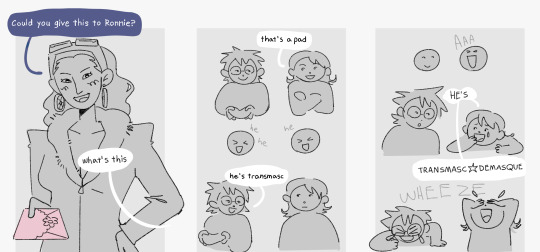
dummies
2K notes
·
View notes